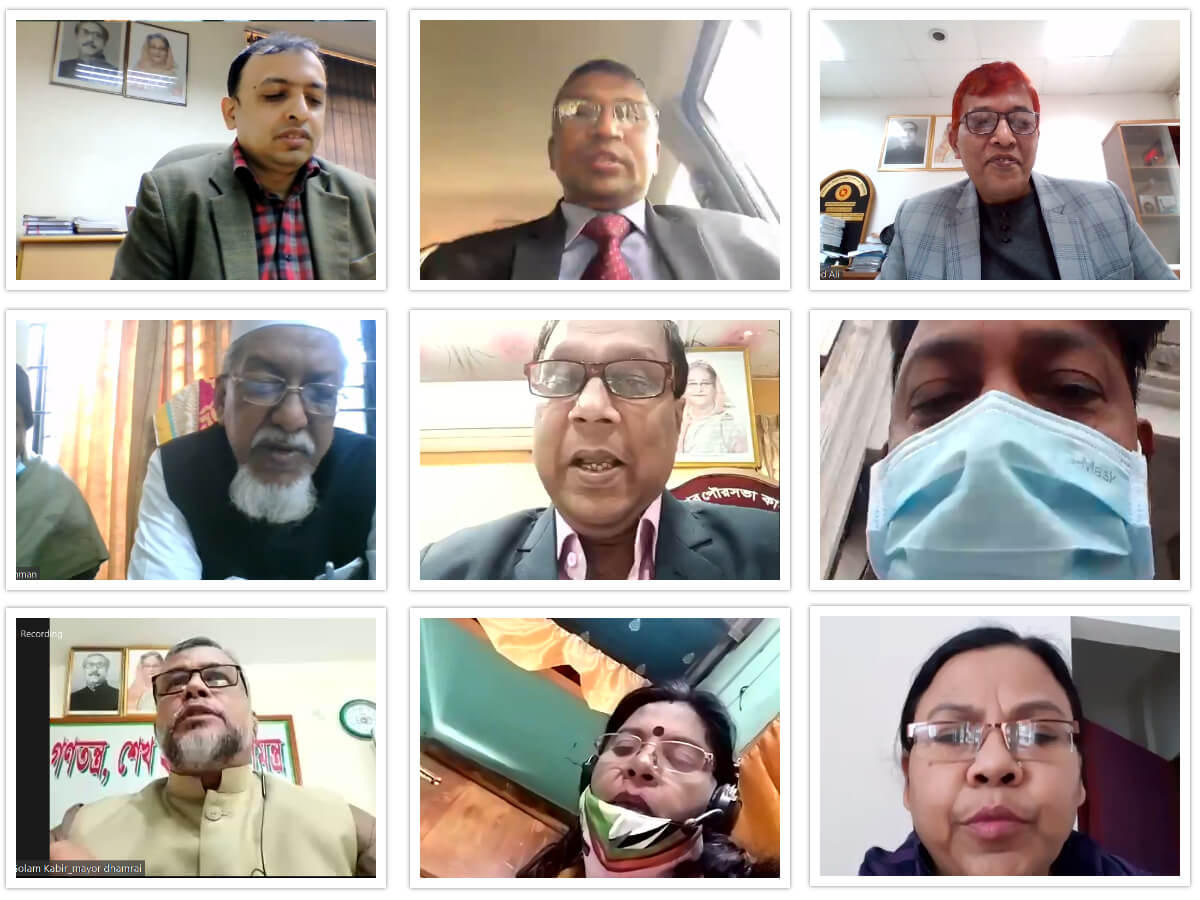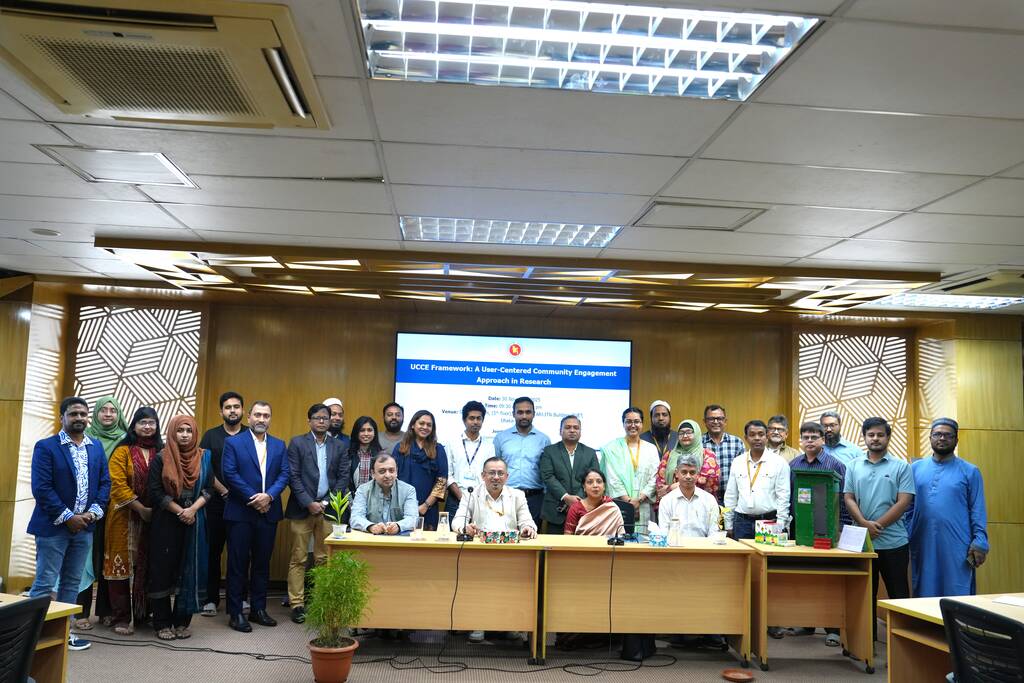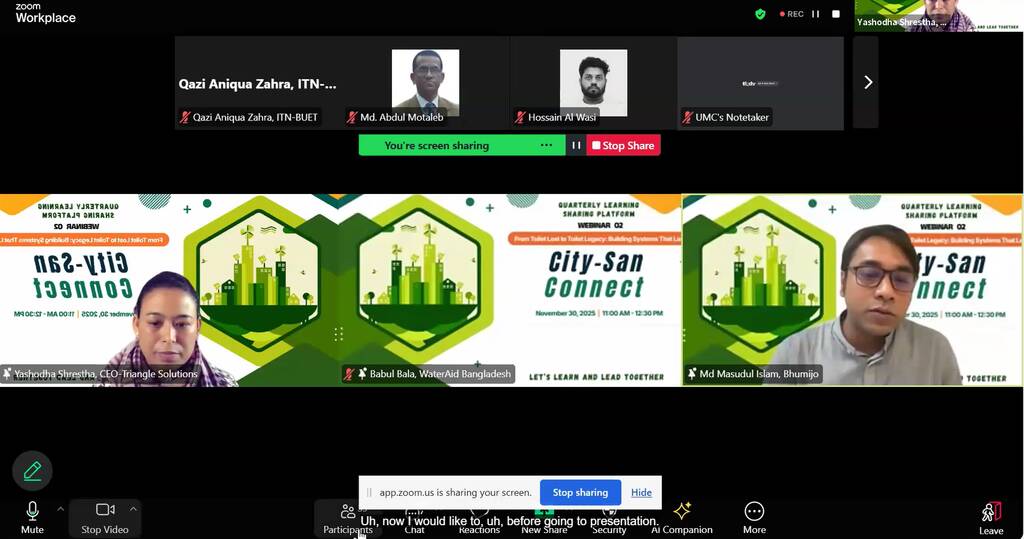With the objective of rapid implementation of FSM services throughout the country by 2030, the Government of Bangladesh approved the National Action Plan (NAP) for Implementing IRF-FSM in 2020. It plays a key role in achieving safely managed sanitation for all. Considering the importance, ITN-BUET, and CWIS-FSM Support Cell of DPHE, are orientating the paurashavas of Bangladesh for carrying out the necessary actions.
On January 15, 2022, orientation was provided online to the Paurashavas under the 23 Paurashava Project of DPHE. Project Director, 23 Paurashava Project; Co-chair, CWIS-FSM Support Cell; Engineers of DPHE; Honorable Mayors, Panel Mayors, Councilors, and relevant officials of the Paurashavas attended the event.

Mr. Md. Wazed Ali, Project Director, 23 Paurashava Project, in his welcome note, said that fecal sludge management is one of the important elements of this project. It is high time the paurashava authority takes ownership of project components, including the FSM system. He hoped that the quick implementation of the project would pave the way for achieving the SDG 6 agenda according to the commitment of the GOB. Professor Dr. Tanvir Ahmed, Director, ITN-BUET, briefly presented the roles and activities of Paurashavas as outlined in the action plan. He said that ITN-BUET would continue its endeavor in future capacity-building initiatives for Paurashava officials on FSM and CWIS for successfully achieving the milestones of NAP.
Honorable Mayors of Shibganj, Dhamrai, Gobindoganj, Shaistaganj, Godagari, Kanaighat spoke during the open discussion session. Ms. Gita Rani Kundu, Panel Mayor, Manirampur Paurashava, asserted that extensive capacity-building of Mayors, councilors and all the officials of the paurashavas should be the topmost priority. Mr. Golam Kabir, Mayor, Dhamrai Paurashava, said that the FSM service cannot be sustainable without proper city planning. He hoped that the NAP would help the authority to create an environment-friendly city in the near future.
Co-Chair of CWIS-FSM Support Cell (CFSC), Mr. Md. Shafiqul Hasan, in his closing remarks, said that to ensure proper public health outcomes, it is necessary to provide safely managed sanitation services in all paurashavas. DPHE has already included fecal sludge management in most of its projects. Although technology and hardware supports are available, the Paurashava authority should consider proper stakeholder engagement, awareness-raising and other cross-cutting issues for long-term sustainability. He assured that CFSC will continue to provide necessary technical and capacity-building support in association with ITN-BUET for this purpose.





